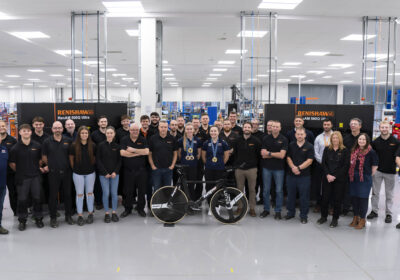The marine industry in the UK has a massive impact on the economy and jobs, generating over £9 billion and supporting over 38,000 jobs. Making sure that processes are efficient to avoid downtime impacting the output is important, and being able to identify the common machinery issues that could affect this can help be predictive in their maintenance.
Andrew Powles Managing Director at FPE Seals, supplier of high-quality pneumatic seals, has broken down four of the most common machinery issues that the marine industry faces, as well as offering advice on how best to mitigate the long-term damage they can cause.
Rusting and corrosion
The marine industry relies on saltwater to exist, but it is also a huge issue for the machinery used within the sector. Due to the mix of oxygen, moisture, and sodium chloride, it eats away at the metal surfaces of the machine, speeding up the production of rust and corroding the surfaces.
Replacing machinery with like-for-like substitutes can be extremely expensive, which is why inspection and maintenance should be a top priority to avoid them degrading into disrepair. Your vessel will have areas of its structure that are more prone to corrosion, and you should take extra care and give more attention to them to make sure they’re properly protected. This can be done through the application of anti-corrosion coatings and sacrificial anodes to protect against the saltwater.
Electrical failures
Saltwater doesn’t just affect the looks and structure of the machinery on your vessel but can have a significant impact on electrical systems. The corroding nature of saltwater can also affect the wiring and circuit boards within the machinery. Running power through any water-damaged devices or any that haven’t been properly tested can cause electrical fires, electrocutions, or further damage to the machine.
It’s crucial to reduce these risks not just to prevent equipment downtime, but also to keep workers in the industry safe from the potential dangers to health they can cause. Regular checks of the devices should be undertaken, and if there are concerns of corrosion or damage from the saltwater, investing in components that are industry-proven as moisture-resistant should be the top priority. Sealing the components properly can also stop the ingress of water and the damage it poses.
Hydraulics – steering, cranes, and other important systems
Hydraulics play a huge role across many elements of the marine industry and the machinery that’s used, such as steering systems, cranes and other lifting equipment, and hatch openings. Should these systems suffer any failures, it puts the crew at significant risk and can lead to accidents and damage to your vessel and any cargo.
Your workforce should be appropriately trained for their roles but should also be prepared for the eventuality that system failures occur. Incorporating regular checks for hydraulic leaks into your examination procedures can help to detect any faults early, preventing further damage and reducing long-term risks.
Your vessel’s engine – fuel contamination and overheating
The engine of your vessel is the most important component of it, so keeping it protected from the dangers and risks it can experience is crucial to making sure it’s able to run. Some of the most common examples of engine issues revolve around failing cooling systems and contaminated fuel.
Cooling systems help to spread and dissipate heat from your engine. Should any blockages or leaks occur, it can cause the engine to overheat which reduces the efficiency and can cause huge failures. Similarly, your fuel systems are what power your engine and produce the propulsion, so you want to avoid any contamination to halt or stall its processes.
Setting up a maintenance schedule for your engine can help to identify risks before they grow into much larger issues. These should always involve checking and replacing the necessary fluids and components, which should always include investment into the highest quality materials available to your budget. This is important for your fuel systems, as they should be kept clean and try to stop any water or sediment affecting them. Furthermore, secure fuel storage and handling should always be carried out to ensure quality is maintained with no contamination.

Sources








